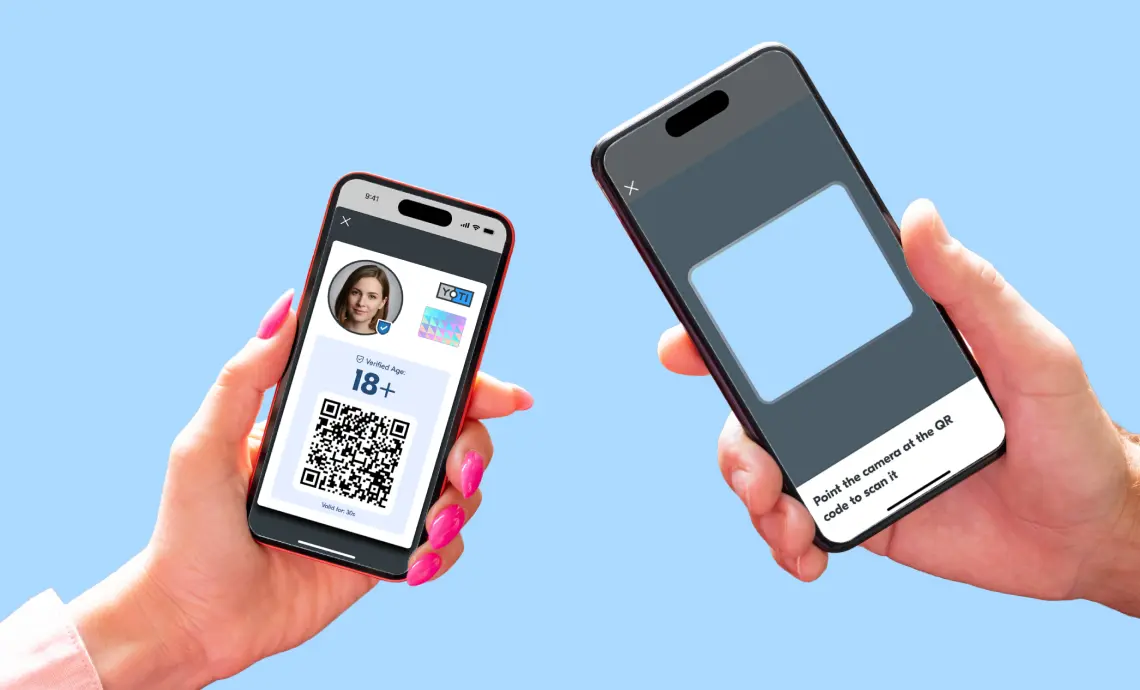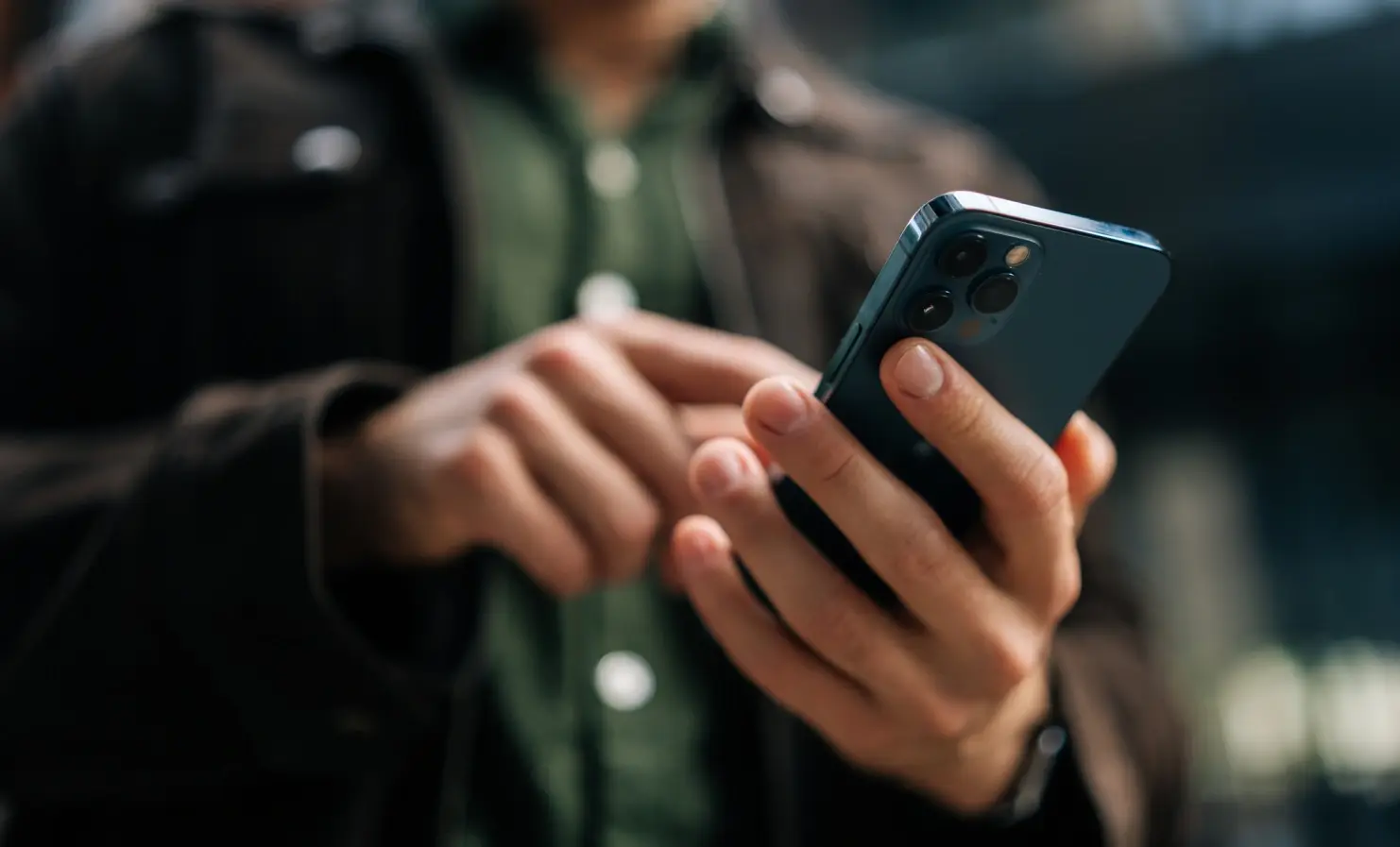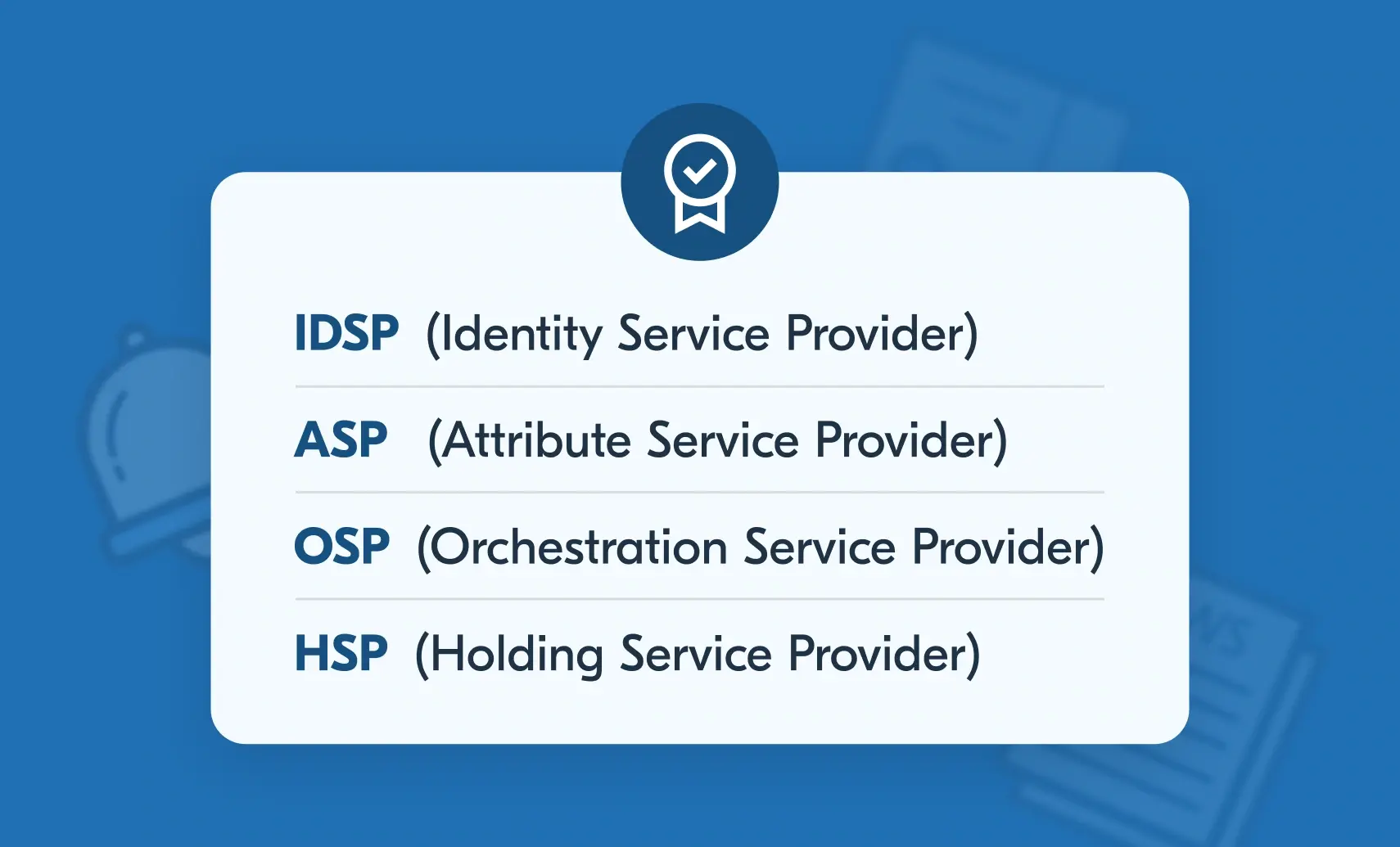
There’s no denying we’ve moved most of our lives online, and the majority of the time, our phones are the instant portal we use to get us there. They’ve become our personal shoppers, our social life planners and documenters, our music, films and books all in one. With everything already in the palm of our digital hand, it makes sense that the way we prove our age and identity should be too.
A Digital ID is your ID on your phone, replacing physical documents with a smarter, instant way of proving who you are. We think it’s the future but understand why some people might not be quite ready to leave the past behind. In an age of unconsulted data collection, and subtly curated Instagram pages, why trust another thing on your phone that’s asking for your personal details? We’ve been listening to the concerns out there and we’re ready to bust some of those myths about our technology.
It’s government controlled
This is not true. We’re a private company and our Digital ID app is voluntary – you can back out at any time if it’s not for you. It’s not designed to push society towards mandatory Digital ID cards. Instead we give individuals the choice to create and use a Digital ID. It’s not for us to say how you prove your age or identity – that’s up to you.
This is the start of a surveillance society
While we’re shaping the future of digital identity, we’re not trying to create a state of surveillance. In fact, quite the opposite. The Yoti and Post Office EasyID apps are built to make it safer and more private for people to prove who they are. We can’t and never will identify people sharing age or identity information, and we can’t track them once they’ve downloaded the app. No-one else can access your data – not even Yoti. The only person that can share and access your data is you, because that’s how it should be.
This is just a marketing ploy
While we’re our technology’s own biggest fans, it doesn’t mean you have to be. We’ll never tell you it’s the only option as we think there should always be a non-digital alternative. We believe that it should be your choice to use a Digital ID. That’s why Yoti and EasyID are completely optional.
Digital IDs aren’t private or secure
A Digital ID is actually more private than showing a physical ID document. Every time you show an ID you reveal so much personal information about yourself – your date of birth, full name, passport number, photo and so on. Our Digital ID app only asks for certain information, such as your age or ‘over 18’. You can securely share verified details at the tap of a button or the scan of a QR code. It’s an easier and more secure way to prove your age or identity.
You’re also protected if you lose your phone or it ends up in the wrong hands. A Digital ID is your data in your hands, and it definitely won’t be in someone else’s hands – no-one else can access your Digital ID. This means you’re actually more protected against the risks of identity theft compared to if someone were to find your passport or driving licence.
You can’t use a Digital ID anywhere
We’re very proud that our Yoti and EasyID apps are being accepted at more and more places. Young people can prove their age at UK Cinemas, so they can leave their passport safe at home. The apps can also be used online or in-store at over 30,000 stores across the UK! So next time you’re buying lottery tickets, tobacco or just nipping off the street to grab an energy drink, we’ve got you covered.
We’ve also been trialling the apps at a number of supermarkets for the purchase of alcohol, including Asda, Tesco, Morrisons and Co-op. We’re now just waiting for the results to come in so watch this space…
Thanks to new Home Office guidelines introduced in April 2022, if you’re a UK or Irish citizen, you can also use the Yoti and EasyID apps to prove your identity for Right to Work checks. A much simpler way to prove your Right to Work, identity details can be submitted online, perfect for a hybrid workplace, or where an organisation may have locations nationally.
This will exclude those that don’t use a Digital ID
Our Digital ID doesn’t exclude or discriminate against those that don’t use it. We believe there should always be an alternative for those who still want to prove their age or identity by whichever way feels familiar and comfortable to them.
A Digital ID is just a photo of your ID on your phone
Not quite. It’s true you need to take a picture of your government-approved ID but this is just to create your Digital ID. Once you’ve finished setting up your account, you can then use your Digital ID to just share specific information – this could be just your name or your date of birth. By sharing data piece by piece, you can control the specific details you share rather than showing a full ID. This is a more private way to do things.
Is Yoti a self-sovereign app?
Some of you might be wondering what that means. A self-sovereign (SSI) app is designed to “place the digital ID back into the user’s wallet” and reduce the compliance and burden of data storage for businesses. So instead of having a central database for users’ data, the individual or business has sole ownership over controlling their accounts and personal data.
We do things a little differently. Although only users can access their own data, we store the data. So technically, this excludes Yoti from the SSI category.
Instead, we distinguish ourselves by storing data in an encrypted vault that only the user can access with an encrypted key stored on their phone.
Can I use a digital ID wherever I need to prove my age or who I am?
While we admit a Digital ID can’t be used for everything just yet, the number of ways you can use a Digital ID continues to grow. If you have any other questions we haven’t answered here, then please get in touch.




